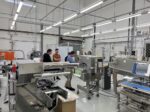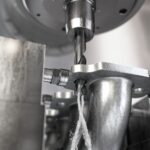Australia and Japan’s top engineers show the way for a renewable hydrogen sector
Australia and Japan’s joint technological expertise can lead the way in international clean energy, according to a joint report focussing on hydrogen, released today. This partnership will lead to new jobs, cleaner industry, and economic benefits for both nations.The Australian Academy of Technological Sciences and Engineering (ATSE) and The Engineering Academy of Japan (EAJ), led by its Emerging Research Leaders Exchange Programme (ERLEP), launched their joint report ‘The Australia-Japan renewable hydrogen value chain’, at an event today in Osaka during World Expo 2025. ATSE and the EAJ have brought together Fellows from both Academies to shine a light on our shared potential. The report outlines hydrogen’s emerging role as a clean fuel with potential across two nations’ economies – in construction, manufacturing, agriculture and fertilisers, and chemical production. It articulates the steps necessary to most expediently produce, transport, store, and use millions of tonnes of green hydrogen across Australia and Japan. Fuelled by abundant and cheap Australian renewable energy using technologies leveraging Japanese and Australian inventions, green hydrogen is primed to become a critical industry and trade focus in the Asia-Pacific by 2050. Acting as a carrier of energy and a clean, highly useful chemical input, green hydrogen can also set up other sectors for success, including steelmaking and fertiliser manufacturing. ATSE CEO Kylie Walker said, “Achieving this potential requires a sustained focus on skills, infrastructure and financing. Japanese and Australian innovation, working together in partnership, are a force to be reckoned with. Today’s report lays out how retrained personnel from existing energy industries could add to their existing knowledge and fill the critical hydrogen roles of the future.” EAJ Chair of International Affairs Yuko Harayama said, “Japan and Australia are perfect partners for exploring the complementarity and synergy in their expertise in renewable hydrogen. The key would be to bring together stakeholders from industry and academia from […]










